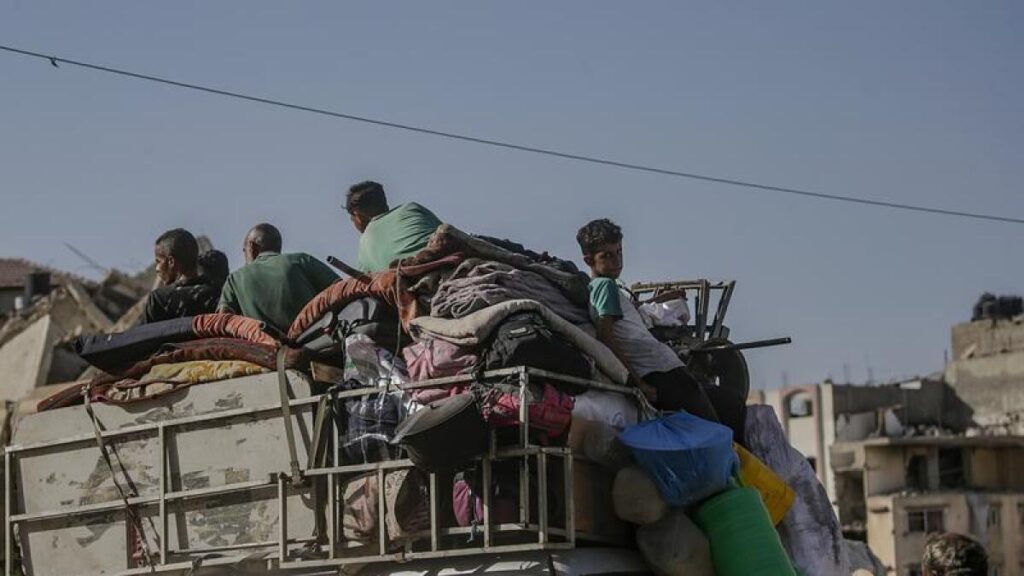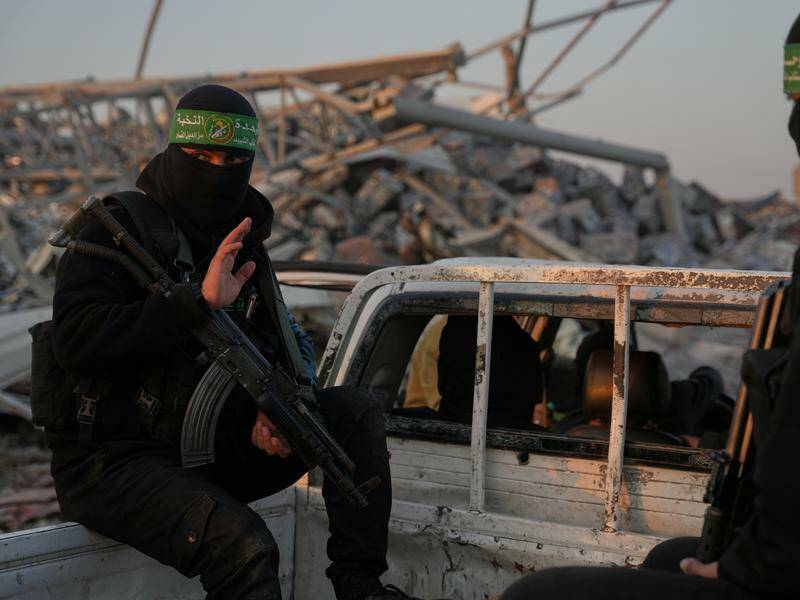
Israeli airstrikes in Gaza City have significantly decreased, according to local reports, although no military forces have withdrawn from the territory. On Saturday, Mohamed Abu Selmiyah, director of Shifa Hospital, informed the Associated Press that recent Israeli strikes resulted in the deaths of five Palestinians across the city. This reduction in bombardment follows a statement from the Israeli military that came just hours after President Donald Trump urged Israel to cease its attacks, following Hamas’s indication of acceptance of certain elements of his peace proposal.
President Trump expressed optimism about the situation, stating, “I believe they are ready for a lasting peace.” His determination to fulfill commitments to end the ongoing conflict and secure the release of hostages is underscored by the upcoming second anniversary of the attack that initiated the crisis on October 7, 2023. The plan he unveiled earlier this week has garnered substantial international backing.
On Friday, the office of Israeli Prime Minister Benjamin Netanyahu affirmed Israel’s commitment to conclude the conflict that erupted after Hamas’s attack. Facing increasing pressure from both domestic and international sources, Netanyahu issued a rare late-night statement during the Sabbath, indicating that Israel is preparing for Trump’s proposal. An official disclosed that a negotiating team is being assembled, although no specific timeline has been provided.
In a related development, a senior Egyptian official reported that Steve Witkoff, a U.S. envoy, will lead the American negotiating team in discussions aimed at securing the release of Israeli hostages in exchange for Palestinians currently detained in Israel. Delegations from both Israel and Hamas are expected to participate in the negotiations, which will also address the potential withdrawal of Israeli forces from key areas in Gaza.
Negotiations will include discussions about maps outlining the expected troop withdrawal, as well as a framework for a comprehensive dialogue among Palestinian factions to unify their positions regarding Gaza’s future. According to the plan, Hamas would be required to release the remaining 48 hostages—approximately 20 of whom are believed to be alive—within three days, while also agreeing to disarm and relinquish power. In exchange, Israel would halt its military offensive, withdraw from much of Gaza, release hundreds of Palestinian prisoners, and facilitate the entry of humanitarian aid and reconstruction efforts.
While Hamas has expressed a willingness to release hostages and transfer authority to other Palestinian groups, it stated that other elements of the plan necessitate further internal discussions. Notably, the issue of Hamas’s disarmament, a crucial aspect of the agreement, has not been directly addressed.
Amir Avivi, a retired Israeli general and chairman of the Israel Defense and Security Forum, noted that Israel could afford a temporary pause in military operations to facilitate the hostages’ release. However, he cautioned that the offensive would resume if Hamas fails to disarm. Other analysts suggest that despite Hamas’s apparent openness to negotiating, its fundamental position remains unchanged.
“This ‘yes, but’ rhetoric simply repackages old demands in softer language,”
stated Oded Ailam, a researcher at the Jerusalem Centre for Security and Foreign Affairs.
As the situation evolves, residents of Gaza are trying to comprehend the implications of the proposed plan. “I hope Hamas ends the war, because we are truly tired,” said Mohammad Shaat in Khan Younis, reflecting the sentiments of many Palestinians navigating the devastation in their communities.






